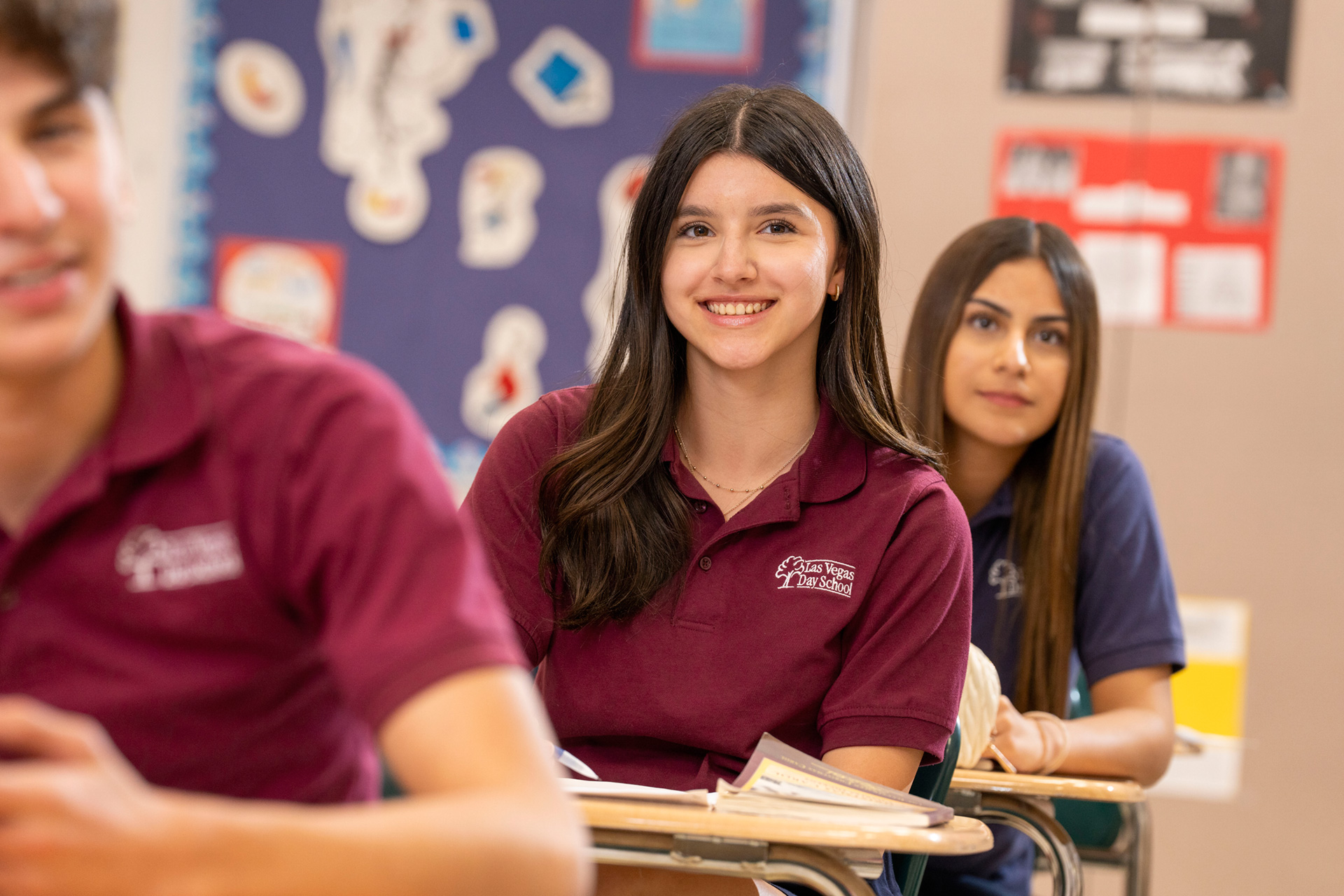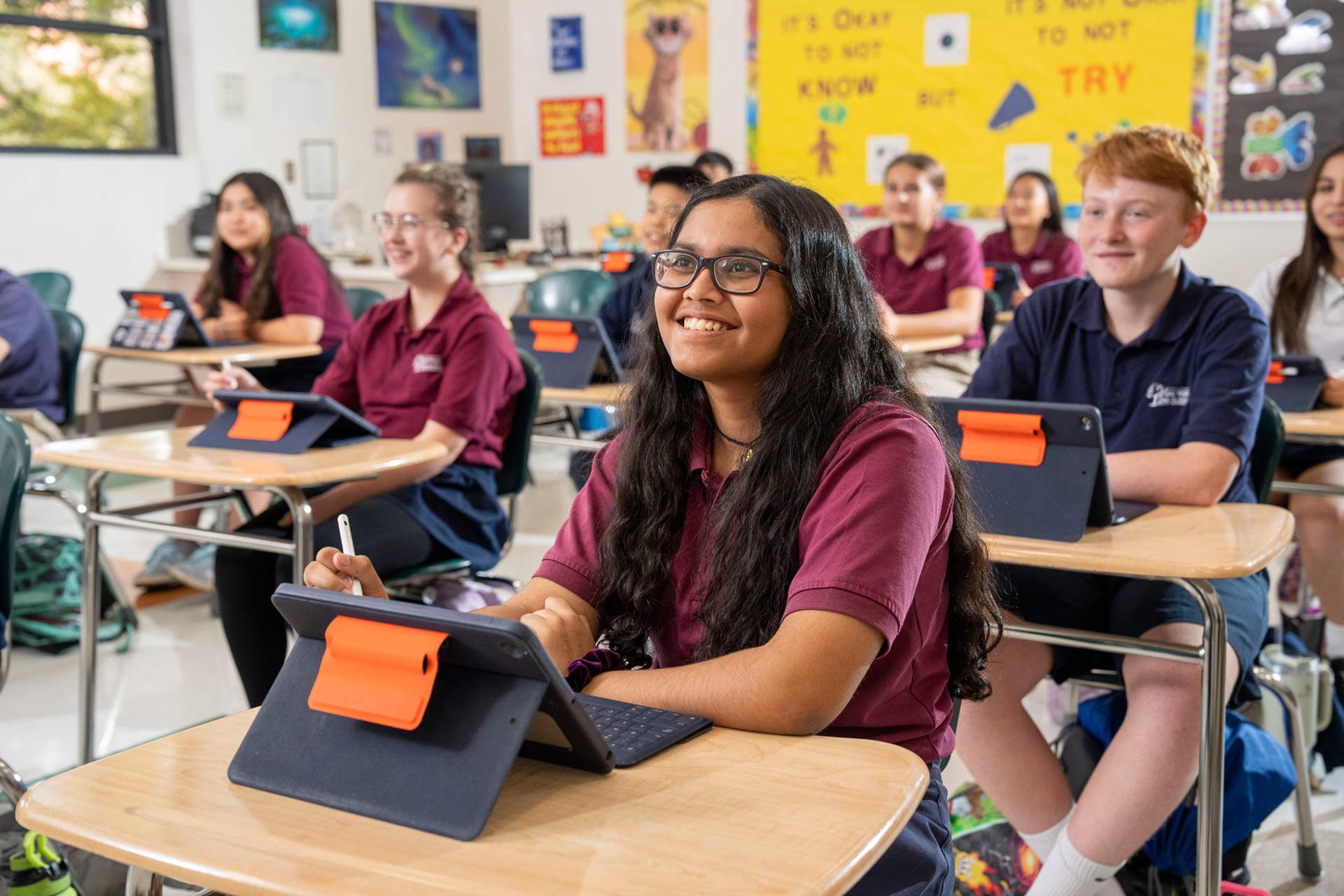Schedule a Tour
Sixth Grade
Seventh Grade
Eighth Grade Facts At A Glance
- Age range: 13 years old to 14 years old.
- School hours: Classes start at 8:10am and dismisses at 3:32pm.
- Classroom size: 22 students
- Student to Faculty ratio: 22:1
Eighth Grade FAQ

What social, emotional, or academic help does LVDS provide its students?
We have two guidance counselors on staff that help our middle school students with any challenge they are experiencing. Our guidance counselors regularly lead guidance lessons focused on building social skills, setting goals, and improving study skills. Our counselors are also available for one-on-one meetings with students and parents to discuss high school options, improving grades, or to provide help with social or emotional struggles.
Does the school take donations or do charity drives?
Students in all grades have the opportunity to donate to various local charities by participating in numerous drives including food, clothing, toys, toiletries, and even pet food.
Does the school require community service?
Eighth graders are all required to do twenty hours of community service as a graduation requirement.
Do students get free dress days?
All students wear the school uniform, but get the opportunity for free dress days on numerous occasions throughout the year. Free dress passes are given for birthdays, good grades and making donations to charity drives.

